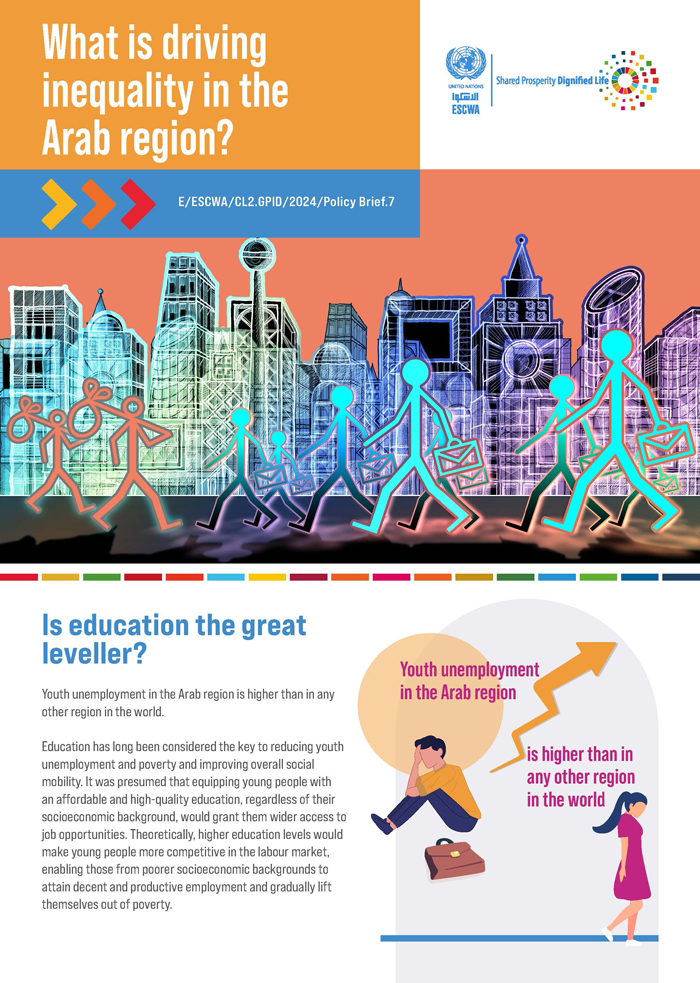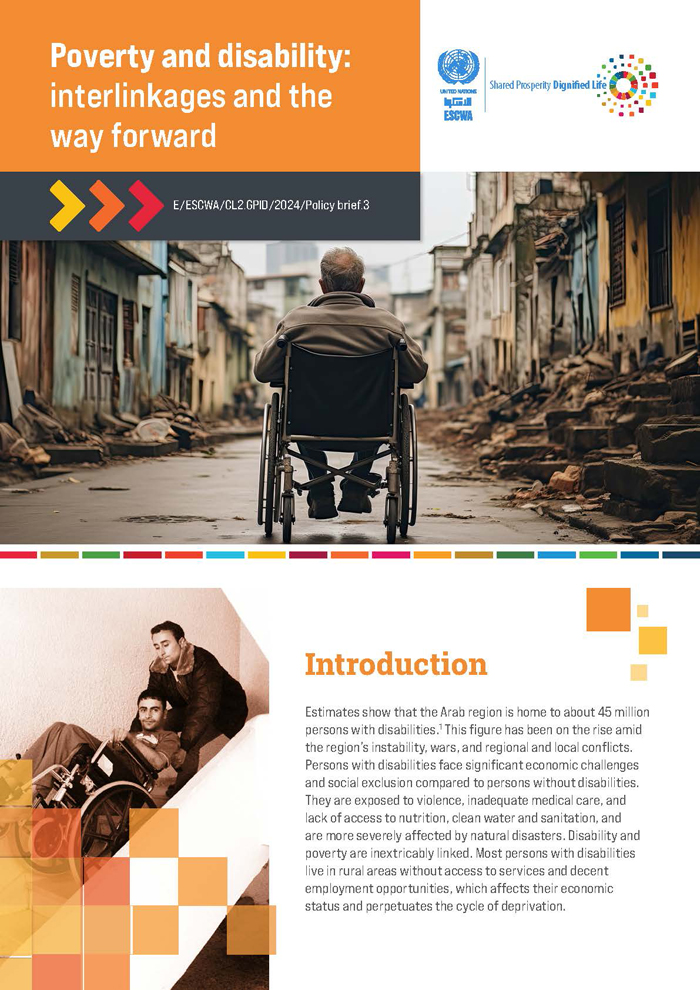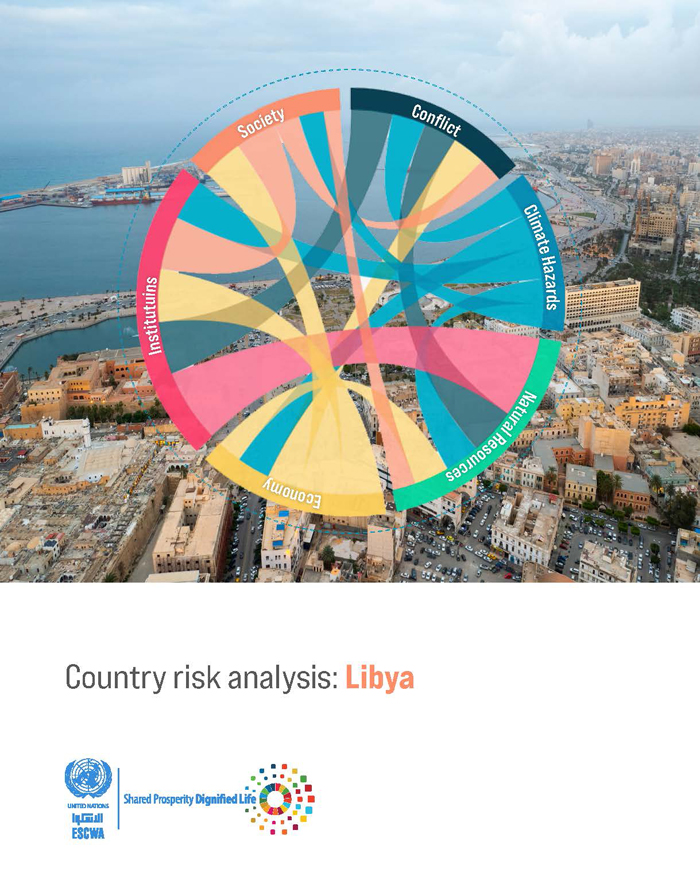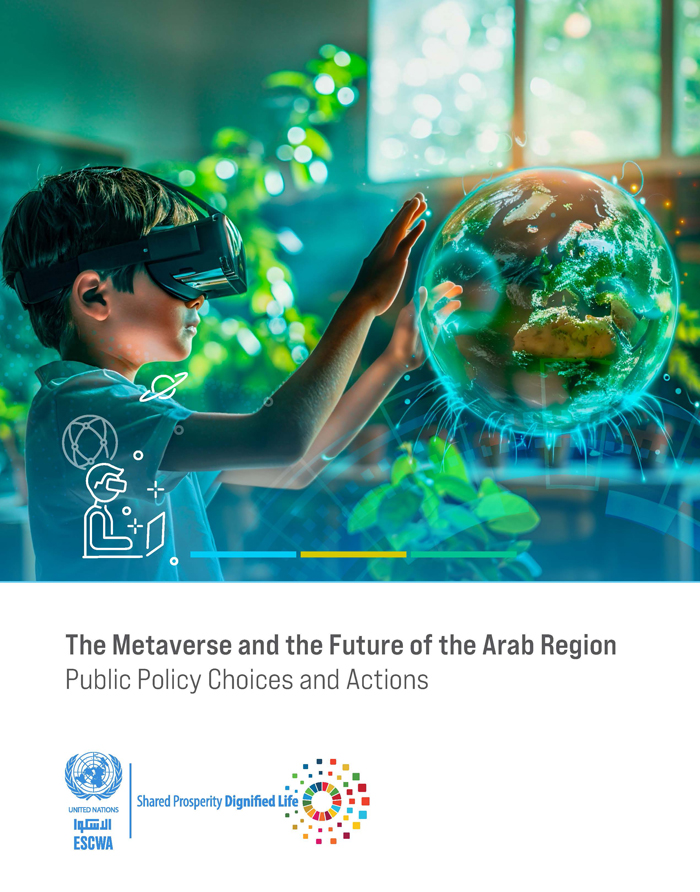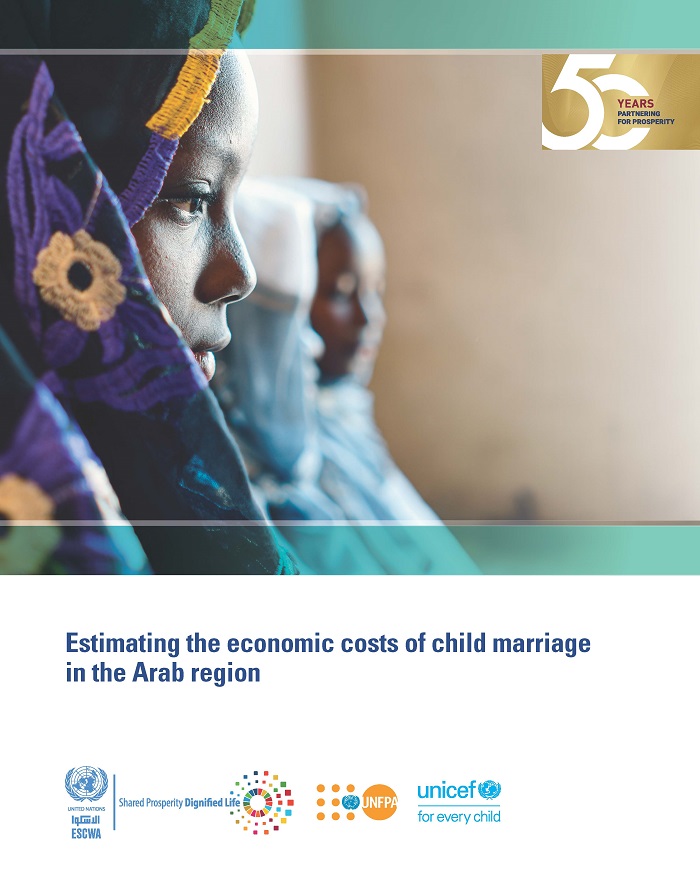
ESCWA Publication: E/ESCWA/CL2.GPID/2023/7
Country: People’s Democratic Republic of Algeria, Arab Republic of Egypt, Republic of Iraq, Hashemite Kingdom of Jordan, Islamic Republic of Mauritania, Kingdom of Morocco, State of Palestine, State of Qatar, Federal Republic of Somalia, Republic of Sudan, Syrian Arab Republic, Republic of Tunisia, Republic of Yemen
Publication Type: Reports & studies
Cluster: Gender Justice, Population and Inclusive Development
Focus Area: Gender equality, Inclusive development, Population dynamics & migration
Initiatives: Women’s economic empowerment, Women’s rights and gender mainstreaming
SDGs: Goal 3: Good Health and Well-Being, Goal 4: Quality Education, Goal 5: Gender Equality, Goal 16: Peace, Justice and Strong Institutions
Keywords: Early marriage, Girls, Economic aspects, Costs, Fertility rate, Infant mortality, Educational aspects, Medical aspects, Labour market, Households, Gross domestic product, Sustainable development, Algeria, Egypt, Iraq, Jordan, Mauritania, Morocco, State of palestine, Qatar, Somalia, Sudan, Syrian arab republic, Tunisia, Yemen, Statistical data
Estimating the economic costs of child marriage in the Arab region
May 2024
The present study explores the critical issue of child marriage, which has profound lifelong implications for girls’ education, health and economic outcomes. Despite a declining trend, child marriage continues to be prevalent in the Arab region, affecting around one in five girls who marry before the age of 18, with varying levels observed across countries. The study plays a crucial role in advocating for attention to this urgent problem by presenting the economic costs of child marriage in 13 Arab countries. The findings emphasize that child marriage has demographic, social and health implications, resulting in direct and indirect monetary and non-monetary impacts at the individual, household and State levels.
To provide a comprehensive assessment, the study employs a wide range of indicators and projects economic costs up to the year 2050. The findings suggest a GDP loss of 3.2 per cent in 2021 due to child marriage, with a cumulative loss of approximately $3 trillion between 2021 and 2050. The report underscores the need for comprehensive action, including family planning, health care, education and labour market opportunities for women, to prevent child marriage and alleviate its adverse economic consequences. Such measures are crucial in safeguarding the well-being and future prospects of young girls and contributing to the region’s sustainable development.
Estimating the economic costs of child marriage in the Arab region: Supplementary material
Related content
Gender equality
, Inclusive development
, Population dynamics & migration
,
The present study explores the critical issue of child marriage, which has profound lifelong implications for girls’ education, health and economic outcomes. Despite a declining trend, child marriage continues to be prevalent in the Arab region, affecting around one in five girls who marry before the age of 18, with varying levels observed across countries. The study plays a crucial role in advocating for attention to this urgent problem by presenting the economic costs of child marriage in 13 Arab countries. The findings emphasize that child marriage has demographic, social and health implications, resulting in direct and indirect monetary and non-monetary impacts at the individual, household and State levels.
To provide a comprehensive assessment, the study employs a wide range of indicators and projects economic costs up to the year 2050. The findings suggest a GDP loss of 3.2 per cent in 2021 due to child marriage, with a cumulative loss of approximately $3 trillion between 2021 and 2050. The report underscores the need for comprehensive action, including family planning, health care, education and labour market opportunities for women, to prevent child marriage and alleviate its adverse economic consequences. Such measures are crucial in safeguarding the well-being and future prospects of young girls and contributing to the region’s sustainable development.
Estimating the economic costs of child marriage in the Arab region: Supplementary material
